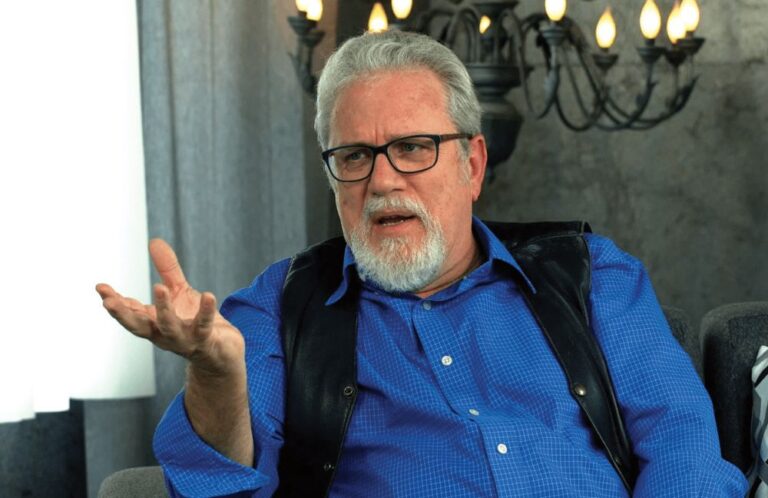By Michael Ashcraft –
The biography of Muhammad comes from Germany in 1860, not from Islamic dynasties like Iraq or Saudi Arabia.
Heinrich Ferdinand Wustenfeld compiled and narrated his life between 1858 and 1860 based on manuscripts from the 11th, 12th, 13th, 14th centuries. Most of his material came from a document from the 16ht century.
“This German scholar gives us the Muhammad that everybody is following,” says Dr. Jay Smith on a CIRA International youtube video. “This Muhammad is not from Ibn Hisham at all.”
Muslims believe that Ibn Hisham collated the life story of Islam’s revered prophet, but no document from him exists today, even though his writings originate from the 9th Century and with courtly patronage would have been copied on parchment that should have survived to modern times. There are no copies of his work in libraries around the world, says Dr. Jay Smith, an Islamic polemicist.
Wustenfeld based his research on six documents, according to Dr. Smith:
- Fez manuscript in Morocco (dated 1063) of which he used only 25% of it and ignored the rest. “He only grabbed what he liked. Here’s a German scholar deciding what Muhammad did depending on what he himself felt was important or not,” Dr. Smith says.
- British Library manuscript in London (dated 1278)
- Bodleian Library manuscript in Oxford (dated 1324)
- Chester Beatty Library manuscript in Dublin (dated 14th Century)
- Bibliothèque nationale de France manuscript in Paris (dated 1420)
- SOAS Library #19320 manuscript in London (dated 1589), where he got most of his material
Gustav Weil produced a competing Life of Muhammad in 1864 from manuscripts.
These scholars were Arabists and dedicated their lives to studying Islam and Arabic literature. Apparently, their scholarly work brought together books that are now revered in Islam, and Muslim scholars weren’t checking the sources of their religion at the time, Dr. Smith says.
“No Muslim was around to correct him,” says Dr. Smith. “No Muslim was studying the life of Muhammad.”
The implications represent a major demolition of Islamic faith. Supposedly, Muhammad died in 632 AD.
The earliest document explaining his life comes from 1063 — almost 400 years later, Dr. Smith says.
“We’re relying on Islamic sources that we’re told existed at a certain time, but tangible evidence proves those manuscripts existed (not until) 100s of years later,” says Al Fadi, a former Muslim from Mecca. “This puts these primary sources in question.”
Out of the rubble of the blast emerges one question: Did Muhammad even exist? Or was he a fabrication of conquering Arabs who wanted to compete with a prophet of their own against Chrsitanity’s Jesus and Judaism’s Moses?
He’s mentioned only four times in the Koran – and when he was mentioned, the original (without vowels in the 7th century Arabic) was MHMD.
“We have lots of documentation about someone named MHMD, but we have no reference from the time period to Muhammad,” Dr. Smith says. “MHMD is well known – in Jewish sources, in Christian sources, in Zoroastrian sources. We’re even getting it from Ethiopian sources.”
MHMD in Semitic languages means the Praised One or the Anointed One. Both Jews and Christians use the MHMD to refer to the Messiah.
Maybe the early Arabs did too. After all, the Koran talks extensively about Allah’s prophet (and calls him MHMD only four times). Maybe the reference was to Jesus.
One of the first Arab rulers was the Umayyad caliph Mu’awiyah (661-680). He minted coins with three crosses on his western coins. If he were Muslim as the Standard Islamic Narrative holds, why did he inscribe his image under crosses?
For the first 50 years after Muhammad’s supposed death, no Arab coins attest to Muhammad. They appear to be Christian or Zoroastrian.
If Muhammad did not exist, how was biography redacted back to the 7th Century. Where did it come from? How was the whole story postulated and for what reason?
These are questions that Western scholars are sure to tackle in coming years. Muslim scholars dare not even ask these questions as they throw doubt on the Muslim faith.
Until scholars give us a clearer picture on the origins of Islam, it appears that Muhammad’s biography came more from Germany than Islamdom.




